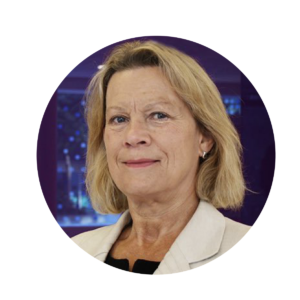By Clare Leek on February 15, 2023

Liz Butterfield is a registered pharmacist and past President of the Primary Care Association with extensive experience in hospital and primary care pharmacy within the NHS and the independent sector. Liz has seen and influenced change in polypharmacy and medicines safety to demonstrate improvement in care through collaborative partnerships in local health and social care systems.
In this video, listen to Liz’s take on how:
- The pandemic evolved the patient role from passive recipient to active participant.
- There is a need to incorporate all aspects of a patient’s health when it comes to a holistic delivery of medicines optimisation.
- Pharmacists must consider their profile and come to the forefront of medicines optimisation, prescribing and patient outcomes.
We asked Selma Abed, Head of Medicines Optimisation here at Spirit Health, to delve deeper into the topics Liz touched on in the video and her key takeaways.

Wearable technology – the future of self-monitoring?
Liz highlighted that digital tech-enabled communications are a key lever to stepping up medicines optimisation within pharmacy. We asked Selma: How do you feel about advancements in wearable technology?
“Wearable technology really does go hand in hand with self-care. It enables patients to be more aware of their actions and habits. If used properly, they can complement a positive and healthy lifestyle, giving the ownness back to the patient for everyday self-care. “
A significant part of medicines optimisation is ensuring patients have a choice in their care and treatment. Liz touched upon how the pandemic accelerated this mindset change from patients being ‘passive recipients to active participants’. The fashionable trend we’re seeing with wearable technology could see a long-term shift in the industry.”
A career that empowers patients
In this episode, Liz mentions that the holistic nature of medicines optimisation means community pharmacists can deliver more patient-centred clinical care. So, with pressing capacity issues across the country, we asked Selma: What makes medicines optimisation attractive to pharmacists wanting to specialise in the industry?
“In medicines optimisation, it’s about patient outcomes. Pharmacists, first and foremost, are medicine experts and want to ensure that each medicine taken will positively impact patients’ lives. This is exactly what our industry offers pharmacists who wish to take the next step and specialise in a discipline. We’ve seen pharmacists grow their expertise, embrace hybrid roles across primary, secondary and community pharmacy, and continually strive to impact patient lives positively.”
Empowering patients and their decision capacity into what treatment or medicine they require to improve their lives is really rewarding. As Liz said, medicine optimisation is holistic, so building strong relationships with patients enables pharmacy teams to tackle health inequalities effectively. ”
Being the voice for collaboration
Different ways to improve patient-centred care were discussed by Liz, including collaboration between practice-based pharmacists and community pharmacy. But how can pharmacy professionals integrate themselves and make their voices heard across all organisations within an ICS to encourage collaboration? We asked Selma for her thoughts.
“Being proactive and finding a forum to communicate and work together is the key to integrating and making pharmacy professionals’ voices heard. Doing the research and becoming aware of the different key stakeholders along the patient pathway gives you a head start. In an ICS environment, collaboration and recognising the collective team’s skills are the key drivers to meaningful change.”
Events and working groups where you can talk through ideas and initiate the changes needed to improve patient outcomes are another great way to participate and create a sustainable, well-connected workforce actively.
We want to know your thoughts and views. Please comment on our Twitter posts @SpiritMedsOp to share your insights and reflection on episode two. Alternatively, you can message Selma Abed on Twitter or by email.
Have you missed an episode? Click on the links below to catch up


